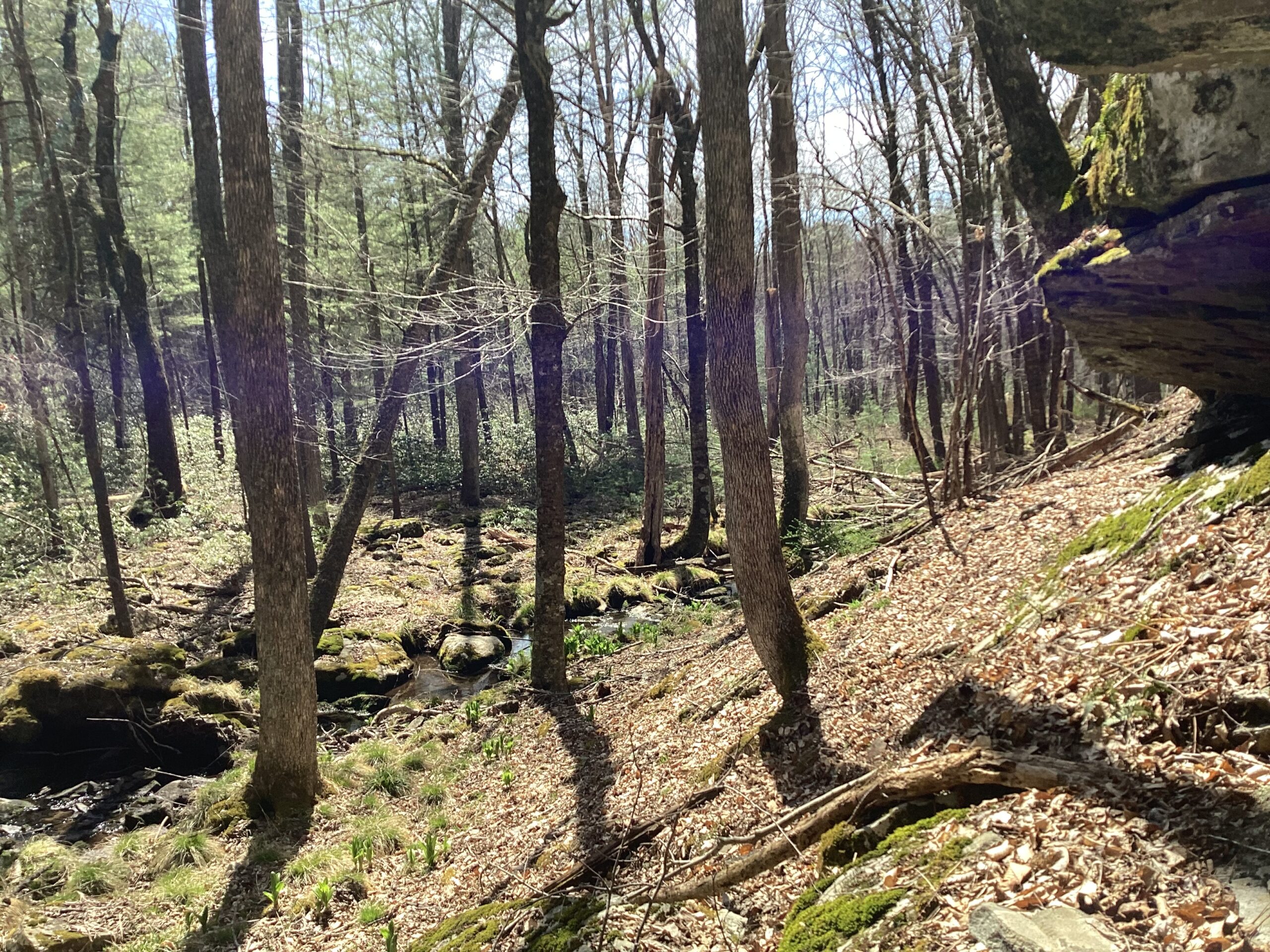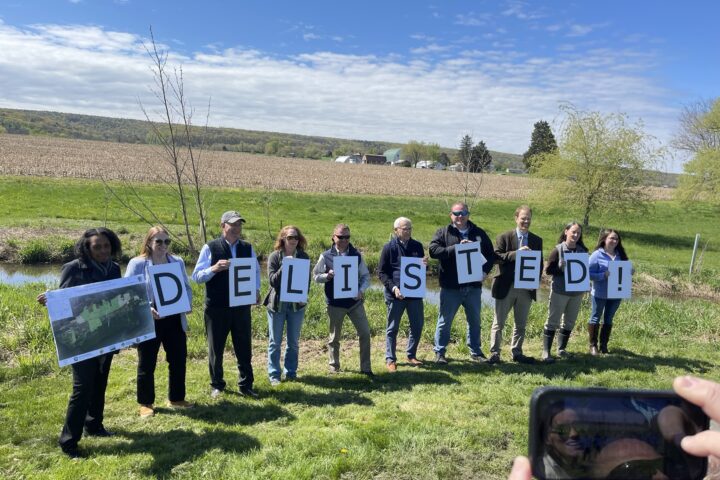The Nature Conservancy (TNC) in Pennsylvania and Delaware today announced that it has purchased 130 acres in Pennsylvania’s Shohola Township and immediately transferred that parcel to the Pennsylvania Game Commission (PGC) for addition to State Game Land 116. The newly acquired acreage is located near, but not directly adjacent to, 1,071 acres in the Shohola Creek watershed purchased by TNC and transferred to PGC earlier this year. Shohola Creek is a tributary of the Delaware River, which provides freshwater habitat for migratory fish as well as drinking water for millions throughout its watershed, including residents of Philadelphia, Wilmington, Trenton, and New York City.

Photo provided by The Nature Conservancy PA/DE.
“Conserving this parcel will enhance and maintain forest connectivity and water quality in a critical Central Appalachians corridor,” said Lori Brennan, Executive Director of TNC in Pennsylvania and Delaware. “Through its land protection efforts in the Upper Delaware headwaters, TNC is committed to safeguarding biodiversity and fostering resilient ecosystems in the face of a changing climate.”
In Pennsylvania and Delaware, TNC is leading large-scale conservation programs that protect the lands and waters that are critical to the health and well-being of both people and nature. In Pennsylvania, TNC is also working to reduce stormwater runoff in cities, protect vital migration corridors, and engage farmers and landowners in supporting the adoption of conservation practices. TNC’s work in Delaware focuses on building resilience against climate change—including along the state’s vulnerable coastlines—to protect human communities and habitats.
For more information, visit nature.org/Pennsylvania and nature.org/Delaware.
About The Nature Conservancy: TNC is a global conservation organization dedicated to conserving the lands and waters on which all life depends. Guided by science, we create innovative, on-the-ground solutions to our world’s toughest challenges so that nature and people can thrive together. We are tackling climate change, conserving lands, waters and oceans at an unprecedented scale, providing food and water sustainably and helping make cities more sustainable. Working in 79 countries, we use a collaborative approach that engages local communities, governments, the private sector, and other partners.




